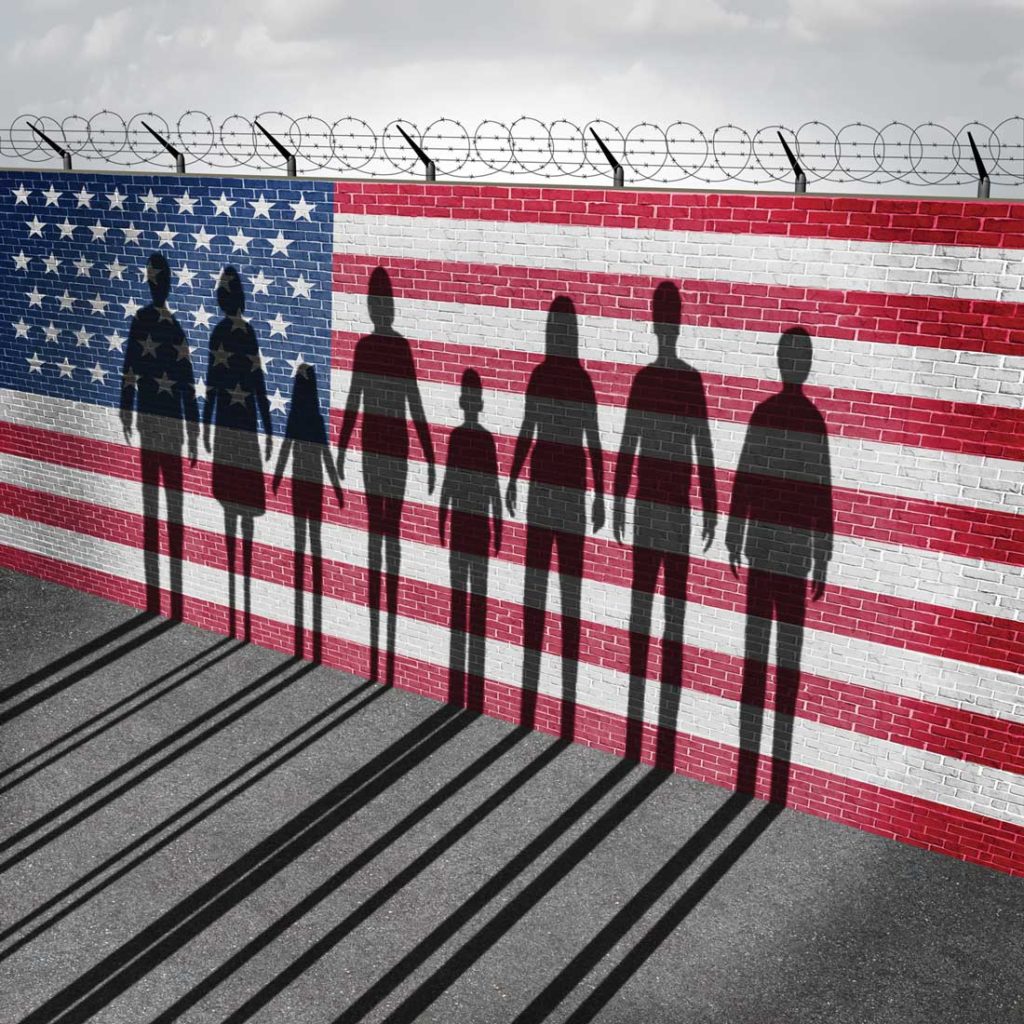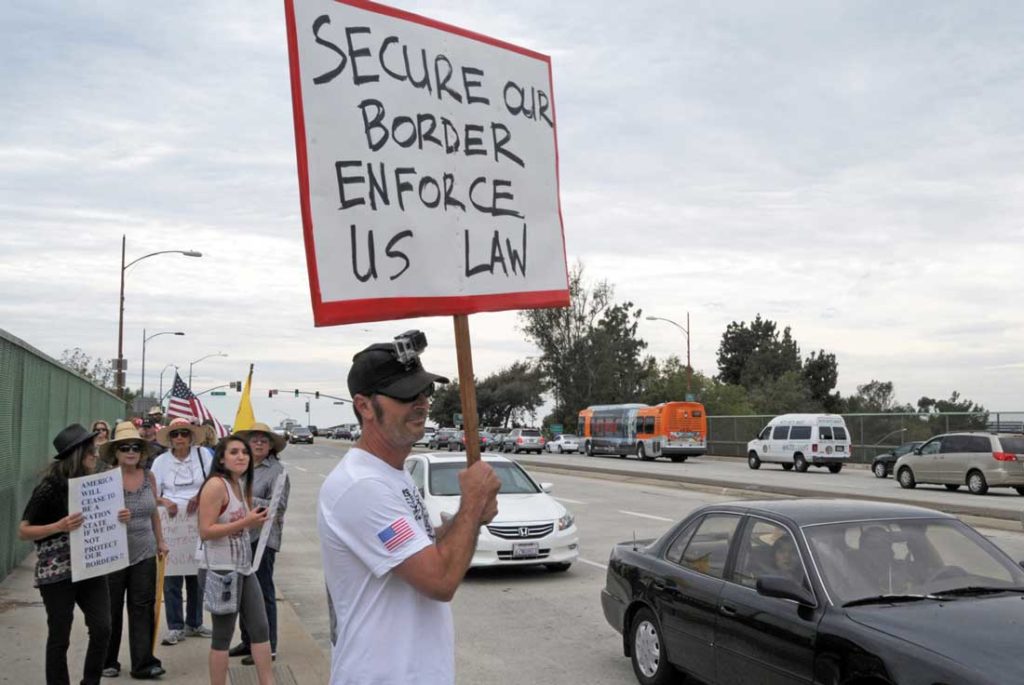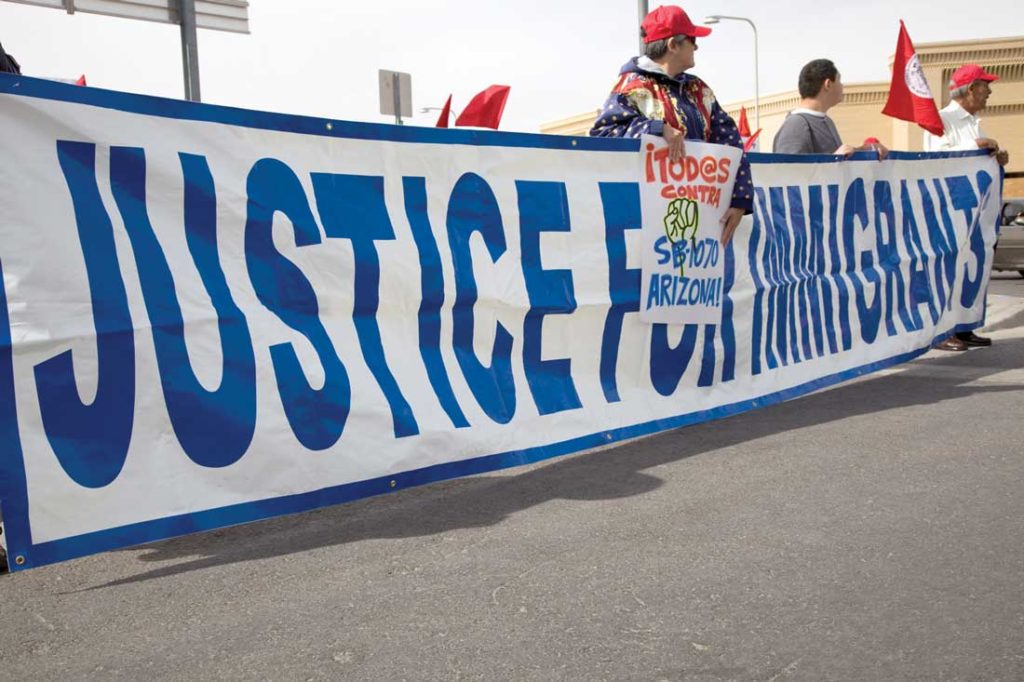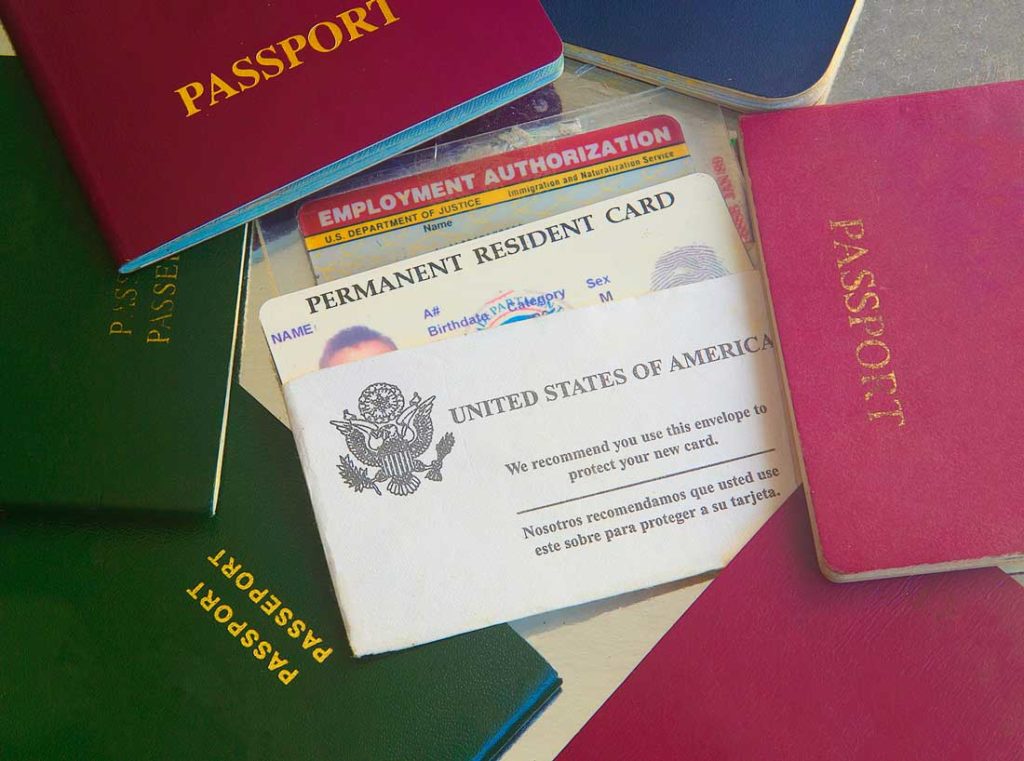You probably have never heard of Jean Carlos Jiménez-Joseph, a 27-year-old Panamanian who killed himself on May 15. He hanged himself while in solitary confinement in immigration detention in Georgia. His was not a grand life. Brought into the country illegally when he was 8, he had a typical life growing up, and then he got busted for stealing a car in January. He was convicted and turned over to immigration for deportation in March.
To a lot of people, Jiménez-Joseph was exactly the kind of illegal immigrant we want deported. But he is also an example of what is wrong with immigrant detention. He was brought here as a child and knows nothing of Panama. He was in his 19th day of solitary — he was put in isolation for jumping from a second-floor tier to the first floor while clowning around — when he wrapped his bed sheet around his neck and died in his cell. According to regulations by Immigration and Customs Enforcement (ICE), 14 days is the maximum in solitary. He was on suicide watch and supposed to be checked on every 15 minutes but wasn’t, according to published reports. A member of El Refugio, a jail visitation ministry group in Georgia, had tried to see him a day earlier at the behest of his mother, who was worried about his mental state, but had been turned away.
Jiménez-Joseph was the seventh immigrant detainee to die in ICE custody in fiscal year 2017 — which began Oct. 1, 2016 — and three more have died since then. In all of FY 2016, there were nine deaths. In 2014, there were six. Some die by suicide, some from a lack of medical treatment. Now and then, someone gets the shiv.
They died under Reagan, under both Bushes, and under Clinton and Obama. So nothing to see here, right?
 Actually, there’s a lot to see: Donald Trump has made illegal immigration a central policy of his administration, and the changes that he is instituting are only going to make things worse, according to several people who work on behalf of illegal immigrants. Those changes include a harsh immigration crackdown with more jail time for detainees and rejecting asylum seekers. And the federal attitude is emboldening states to fire up their own harsher immigration laws, according to the accounts of more than a dozen organizations I contacted that are working on behalf of both illegal immigrants and asylum seekers.
Actually, there’s a lot to see: Donald Trump has made illegal immigration a central policy of his administration, and the changes that he is instituting are only going to make things worse, according to several people who work on behalf of illegal immigrants. Those changes include a harsh immigration crackdown with more jail time for detainees and rejecting asylum seekers. And the federal attitude is emboldening states to fire up their own harsher immigration laws, according to the accounts of more than a dozen organizations I contacted that are working on behalf of both illegal immigrants and asylum seekers.
One key change, according to those organizations, is that the Obama administration, which deported a record number of illegal immigrants, set the deportation priority on getting rid of people like Jiménez-Joseph, who had been convicted of a criminal felony. While Trump has said he will focus on those same convicted felons, he has actually made all illegal immigrants, from students to mothers of American kids, deportable. Additionally, some jail standards are being relaxed or ignored, worsening the living conditions of people in the deportation pipeline, and a whole lot more people are being detained because bonds for illegal immigrants have shot up. There also have been more ICE raids on workplaces and homes — notably in Austin in February and March. Then there was the threat by John Kelly, former secretary of the Department of Homeland Security and now Trump’s chief of staff, of separating children from their mothers when caught crossing into the United States illegally. All of which have created a feeling of dread throughout immigrant communities across the nation. Even grade schools and high schools are not immune: ICE set up several impromptu checkpoints near schools in recent months to ask for identity papers from mothers and fathers bringing their children to school. People are reporting that they are afraid to drive, afraid to go to work, afraid to bring their kids to school.
Those illegal immigrants who wind up in custody are finding that they are immediately targeted for deportation, whether or not they have children or a clean record. And while awaiting deportation, more of them are discovering that their bonds are being set higher than they have traditionally been — and immigration bonds must be paid at face value nearly all of the time. That leaves people who have committed no crime — since being in the United States illegally is a civil, not criminal, offense — sitting in holding facilities like the one where Jean Carlos Jiménez-Joseph killed himself.
The changes to immigration policy started with Trump’s initial announcement that he was going to run for president, on April 16, 2015. During his speech at the Trump Tower Atrium in New York City, he lit an anti-immigrant time bomb when he said, “When Mexico sends its people, they’re not sending their best. They’re not sending you. They’re not sending you. They’re sending people that have lots of problems, and they’re bringing those problems. They’re bringing drugs. They’re bringing crime. They’re rapists. And some, I assume, are good people.”
Later in the announcement, he decided to include people from Central and South America and the Middle East as problematic as well.
It didn’t matter that the statement was ridiculous on the face of it: No country sends its people. They come on their own and at great risk for either political or economic reasons. The cheering crowd ate it up, and Trump had unwittingly discovered something: Anti-immigrant comments worked.

“The thing about the Trump administration is that we now have a president who is blatantly anti-immigrant, and that has galvanized ICE and immigration enforcement,” said Tina Shull, a Soros Justice Fellow working with CIVIC, a nonprofit working to end immigration detention abuses. “Trump’s policies have given those officers more carte blanche to operate as they see fit, whether it’s turning away asylum seekers illegally or targeting anyone they like. Under Obama, the officers felt restricted by his priorities of going after convicted felons. Now they have been set free to run havoc. And while the Obama administration made a lot of mistakes and wound up deporting people that were not supposed to be priorities, no one is safe under the Trump administration. And that is a huge policy shift.”
Amy Fisher, policy director of RAICES, a national nonprofit that provides legal services to refugees and asylum seekers from Mexico and Central America, put it this way: “It’s important to recognize that one of the things that Trump did in his campaign was to put out the message that the Border Patrol under the Obama administration were unable to do their job. And that now that Trump is in power, the policies he’s putting forth are being messaged under the guise of allowing Border Patrol to do their job. This is concerning because we know that in the culture of Border Patrol, the idea is to keep people out, period.”
Though Trump is early in his term, his policies and directives have already had a big effect on how it all plays out on the ground. Take asylum seekers: Anyone arriving at any border of the United States, or caught trying to enter the United States illegally, can ask a Border Patrol agent for asylum. Once they do, they are supposed to be automatically allowed to enter the country, where they take a “credible fear interview,” in which their reason or reasons for applying for asylum are evaluated. Those who pass later have a hearing to determine whether they will finally be granted asylum. Those who fail are generally quickly deported.
But according to Fisher, some people applying for asylum have recently been told by Border Patrol officers, “ ‘Don’t you know that Trump is president now? We don’t accept people from your country anymore.’ ”
In a May statement, the Department of Homeland Security said that “nothing had changed” with the way it handles asylum seekers.
But Fisher isn’t the only person claiming that Border Patrol now routinely turns away asylum seekers. Bethany Carson, an immigration policy researcher with Grassroots Leadership, an organization dedicated to eliminating private prisons, said it’s common practice since Trump took office: “There are so many asylum seekers turned away at the border that there are some immigrants’ rights organizations that are developing protocols that will allow them to accompany asylum seekers at the border to ensure that those seekers have their international rights, legal rights, protected.”
A class-action lawsuit was filed last month in a California federal court, accusing Border Patrol agents of systematically denying entry to hundreds of asylum seekers. Filed by the American Immigration Council and Council for Constitutional Rights — two groups fighting for immigrant rights — the lawsuit claims the Department of Homeland Security and Customs and Border Patrol are violating both federal and international human rights law.
Ruben Jauregui, chief of public affairs for the Customs and Border Patrol-El Paso Field Office, told me the pending lawsuit prevents him from commenting on the validity of rejecting asylum seekers.
Those international, legal rights are inalienable, according to Discretion to Deny, a February report by two groups: the Borderland Immigration Council (a coalition of attorneys and immigration advocacy providers) and the Hope Border Institute (a grassroots organization working in the El Paso-Ciudad Juarez area). “The United States has a moral and legal obligation to respect and protect those seeking asylum who arrive at our borders,” the groups write. “U.S. and international law require that authorities offer protection to those facing persecution in their home countries.”
The report details the abuse of asylum seekers and illegal immigrants at the hands of the El Paso Sector ICE and Border Patrol, and while many of the cases in the report began while Obama was in office, the co-authors make it clear that the abuses are being ratcheted up under the current administration.
Border Patrol and ICE practices deter and dissuade asylum seekers at all points of the asylum process, the groups write, from intimidation and harassment of individuals arriving at ports of entry and agents’ failure to screen for credible fear, to the use of prolonged detention and the abuse of asylum seekers while in custody. These practices, intended to break the spirits of asylum seekers, lead to the deportation of people seeking refuge, often to situations of extreme danger, the groups write: “ICE increasingly denies even the most urgent humanitarian request for stays of removal, with little or no explanation, even to attorneys.”
Traditionally, most asylum seekers who pass their credible fear interviews are allowed to stay with family, friends, or protective organizations until their hearings. They were not considered a threat to disappear because if found, they would automatically be deported, often back to countries where they faced violence or death. During the last year of the Obama administration, more people, including women with young children, were put into family detention centers while awaiting their hearings. Yet despite fewer asylum seekers in the last several months, more migrants are finding themselves in detention while awaiting court dates and, once there, are facing higher bonds to get out.
“We are seeing asylum seekers denied bond even after their credible fear interviews are passed,” Carson said. “They now have to wait for a judge to give them a bond amount, instead of an immigration official like it used to be done. That meant less waiting time in detention prior to being released to await your court date. But we are also seeing higher bonds being asked, and those bonds have to be paid in full.”
Higher bonds means asylum seekers spend more time in detention. But according to the American Immigration Lawyers’ ICE Liaison Committee, the trouble isn’t just bonds that people cannot meet – ICE has begun refusing to even set bonds in most cases.
“I think that is a direct result of the changes to the immigration court system based on the officials that Trump has selected,” Carson said. “These are a direct result of Trump’s position on immigration.”
While asylum seekers getting a raw and illegal deal are generally the most sympathetic immigration group, millions of people who have been in the United States for years are suddenly feeling heat from authorities.

“We’ve already seen in words and actions how enforcement of detention and deportation has expanded in the last several months,” said Bob Libal, executive director of Grassroots Leadership. “We were already at record levels of detained illegal immigrants with the Obama administration, but that is quickly expanding. People here illegally who have any interaction with a law enforcement agent, any law enforcement agent, are liable to be picked up and deemed deportable.”
Prime examples of that were several ICE raids across the country earlier this year, including in Austin. According to a press release from ICE, officers were out in force to arrest “individuals who [posed] a threat to public safety, border security, or the integrity of our nation’s immigration system.”
Based on news reports out of Austin, ICE went further than that, stopping people on the street, knocking on doors in apparently random fashion, and setting up checkpoints. In all, 55 people were rounded up, more than half without any criminal history. They still were all put in line for deportation, and many of them are already gone.
In Virginia, a Feb. 8 ICE raid was carried out just outside a Methodist homeless shelter as most of the male residents had left for work or to find work. According to a United Church of Christ news report on the incident, several men were questioned, many of whom had legal residency. Virginia Gov. Terry McAuliffe later went on CNN to ask Trump — who was not there — “Is this the way it is going to be? Are people going to be stopped and questioned for no reason? Are people going to be shown a photograph of someone ICE is looking for and then going to be questioned themselves? I want to know if this is how it is going to be.”
The answer to McAuliffe’s question is yes, that’s how it’s going to be. When Obama left office, about 34,000 illegal immigrants had been detained, most of whom wound up being deported. A lot of them had committed felonies and already served their time for them. Others were simply caught up in raids of one type or another. But the new administration is looking to expand that number to 80,000 and has already found about 22,000 beds it can use. Private prison corporations are rubbing their hands together with glee.
But according to Silky Shah, co-director of the Detention Watch Network, a national coalition of organizations devoted to exposing the injustices of immigration detention, that bodes ill for future detainees: “Already conditions in detention centers have begun to change with the new administration, and they are changing for the worse. I think Trump has said to the agencies that you can do what you want, more or less. In the past, the bosses set the attitude, so there was at least a façade of something protecting the prisoners. Now there is none of that. Little things like the quality of food is going down while the price of edible commissary food is going up. Some standards that were put into place in 2016 but not codified were aimed at preventing suicide. That’s out now.”
Libal said Trump is on a mission: “Trump promised to roll back the ‘weak’ detention centers. Lowering standards in these facilities has consequences. There have already been more deaths in five months than there typically are. Yes, there are consequences. Sometimes people die.”
To listen to Trump or Attorney General Jeff Sessions, or any of the far-right talking heads on television or radio, you would think that every person deported deserves it. They are all Mexican gang bangers or drug dealers from Central America here to poison our youth or rape our women. The Trump administration went so far to try to demonize illegal immigrants that in January he signed an executive order for Homeland Security to set up a hotline called Voices. The general public was encouraged to call to report crimes committed by illegal aliens, who would presumably then be targeted and picked up for deportation. When it was announced at a joint session of Congress, it was met with boos and groans. That did not deter former Homeland Security Secretary Kelly, who was surrounded by people who said they were victimized by illegal aliens, from proclaiming that, “All crime is terrible, but these victims as represented here are unique and often ignored. They are casualties of crimes that should never have taken place — because the people who victimized them oftentimes should never have been in the country.”
In fact, a July 2015 study by the American Immigration Council, The Criminalization of Immigration in the United States, made it clear that “the evidence that immigrants tend not to be criminals is overwhelming.”
Trump’s hotline was rolled out April 26. It did not go exactly as planned. Albert McCoy, a Marine veteran, apparently read “illegal aliens” differently than Trump and Kelly. McCoy tweeted, “Wouldn’t it be a shame if millions of people called this hotline to report their encounters with aliens of the UFO variety.”
Apparently so many people thought this was a good idea that the hotline was flooded almost immediately with crank callers sharing stories of criminal encounters with extraterrestrials.
Certainly there are people who have been victims of crimes committed by illegal aliens. But the deportation machine that Trump appears to want to create will target many more people than criminals. On April 19, 42-year-old Maribel Trujillo-Diaz, an undocumented mother of four kids, all born in the United States, and the wife of a U.S. citizen, was deported to Mexico. Trujillo-Diaz, who was living in Cincinnati and had been in the United States for 15 years, initially entered the country because she feared the drug cartels in her Mexican hometown. She had never committed a crime and had a work permit but was picked up twice in raids at her workplace. Ohio Gov. John Kasich and both Ohio senators, Sherrod Brown and Rob Portman, had pleaded with ICE to leave Trujillo-Diaz alone, along with the Catholic Archdiocese — she volunteered at a Catholic church there — and a host of others, but to no avail. She was in federal detention in Louisiana for a week prior to her deportation and did not get to say goodbye to her family. Standard protocol does not allow a person who is deported to apply for re-entry to the United States for 10 years.
Trujillo-Diaz is not alone. There’s also the case of 23-year-old Juan Manuel Montes, who was brought to the States when he was 9. He had applied for Deferred Action for Childhood Arrivals (DACA), a 2012 Obama policy that allowed undocumented people brought to the United States as children to apply for renewable two-year permits to stay here, provided they attend school and have no criminal record. Montes fit that bill. But he was picked up in Calexico, Calif., on Feb. 18, and when he was unable to provide his documents — he’d left his wallet in a friend’s car — he was brought to the nearest port of entry and deported. One day later, he re-entered the States and was stopped by Border Patrol. The U.S. Department of Homeland Security initially said that Montes’ DACA had expired in 2015. The department later admitted that Montes’ DACA was still good but insisted he was rightfully deported because he had tried to sneak into the States — regardless of the fact that he was initially wrongfully deported without a hearing. Montes is suing the Trump administration for wrongful deportation.
These cases are not exceptional, Shull said: “Students get targeted, parents get targeted. The anchor baby is a myth. There is no law that allows a parent to stay in the U.S. if they have children born here. They are generally low priority, and it’s true that kids can apply for citizenship for their parents but not until they are 18, which is long time.”
Kate Boyd, an attorney with the American Immigration Council, thinks we’re witnessing the buildup of Trump’s “deportation machine,” starting with “an attack on immigrants who have been here a long time. We’re seeing agency action falling in line with Trump’s directives. Anyone that ICE comes in contact with, even if not a priority, will be put in the deportation line.”
Boyd mentioned a late-April raid on a mushroom farm in Chester, Pa., where ICE did not find the targets of its raid but still arrested nearly a dozen other illegal immigrants working there.
That sort of thing is what forces people into the shadows, she said. “They’re targeting low-hanging fruit, looking for numbers. We’ve seen people picked up who were taking steps to get right with the law. It’s simply a scare tactic.”
And it is working, often to the detriment of the immigrant community. “The raids created real terror in the immigrant community in Austin,” Libal said.
Carson agreed with Libal’s assessment: “After the raids, we saw school attendance rates drop, and we’ve had reports of people not wanting to leave their homes as much or drive during the daytime.”
Patricia Zapor from the Catholic Legal Immigrant Network, a nonprofit working to protect the rights of immigrants, said, “People in communities all over the country are reluctant to call the police to report a crime for fear they’ll get picked up. This is really a detrimental policy for so many reasons.”
And the Trump policies have had a downriver effect as well. Carson said they “have driven some of the most racist laws to be passed in states across the country, including the new SB4 law in Texas,” which forces all law enforcement officers to ask anyone they suspect of being in the United States illegally for proof of his or her legal right to be here.
“It is difficult, almost impossible, to prove you are a citizen, because in this country we do not have national IDs,” Carson said. “And it’s extremely disconcerting that Texas passed a law that will increase racial profiling, because there will be more Latino drivers stopped based on the presumption that they are illegal aliens. And if a person cannot prove they have a right to be here, they will be brought to the local jail until ICE makes a decision on them. That puts a lot of fear into people.”
RAICES’ Fisher said, “We know that as an older white gentleman, you are not going to be asked to prove your citizenship. And if you are asked, you are going to be believed. That encounter is going to be very different from an encounter with a dark-skinned person or a person with an accent. And that is what makes the new Texas law all about racial profiling.”
 CIVIC’s Shull said the current administration’s policies and new state laws have certainly created a heightened sense of fear throughout the immigrant community. “But do you remember the initial question you asked me?” she said. “You asked if things were going to get worse for illegal immigrants with Trump as president. And the answer is yes, because Trump is relying on falsehoods and misinformation about rates of immigrant criminality, and that is scary. There is a longstanding stream of anti-immigrant organizations that have created a large body of false information that provide information for Breitbart and similar sites. And Trump’s inner circle of advisers is informed and capitalizing on those false narratives. So they are going after immigrant communities in the name of safety and crime busting, and that’s simply false. Trump is relying on lies for his information — misinformation — and we need to call it what it is.”
CIVIC’s Shull said the current administration’s policies and new state laws have certainly created a heightened sense of fear throughout the immigrant community. “But do you remember the initial question you asked me?” she said. “You asked if things were going to get worse for illegal immigrants with Trump as president. And the answer is yes, because Trump is relying on falsehoods and misinformation about rates of immigrant criminality, and that is scary. There is a longstanding stream of anti-immigrant organizations that have created a large body of false information that provide information for Breitbart and similar sites. And Trump’s inner circle of advisers is informed and capitalizing on those false narratives. So they are going after immigrant communities in the name of safety and crime busting, and that’s simply false. Trump is relying on lies for his information — misinformation — and we need to call it what it is.”
“Simply put,” said Detention Watch’s Shah, “we are in this weird eye of the storm, and the worst is yet to come. And lost in all of it is that none of these people voluntarily leave their homes to come here. They come here because they don’t have any other options.”
For Hilda, the clock is ticking. Last we talked to her (“Asylum, Texas,” May 25, 2016), she and her young son were living illegally in sanctuary in her Austin church. Though they’re still there, Hilda recently became legal via an unusual “deferred action” on her deportation orders. But it’s good only until October.
Hilda came to Texas as a refugee from drug gangs in Guatemala and knows that she and her son will be killed if she returns. So when her request for asylum was denied and she was offered sanctuary at St. Andrew’s Presbyterian Church, she took it.
“She is free to leave, if she wants,” said the Rev. Babs Miller, an ordained minister at the church. “She initially stayed on because she didn’t want to interrupt her son’s school year. She decided to stay with us until that ended. But now that Trump has been elected, her lawyers are telling her that anything beyond that deferred action will not happen, so she’s going to continue to stay at the church.”
Miller is upset that the ICE authorities in San Antonio with whom she deals are leaving Hilda hanging.
“They could do whatever they want,” Miller said. “They could give her a green card or more deferred action. They already showed they have the power to fix things when they gave her deferred action for a year and she was not eligible for it. That happened because we threatened to bring busloads of people to protest at their offices. ICE does not like bad publicity. But nothing further will happen unless we put pressure on them.
“Of course we are aware of the possibility that come October, ICE agents could just come in here and take her — though that would not look very good for them.”
Miller said that the new policies in place, as bad as they are, are actually beginning to generate political action against them: “We’re working with three other churches in Austin to [furnish] them [with] bathrooms and showers because we have three more people who need sanctuary next month. And the churches have begun to bring food to families who are afraid to leave their homes to go shopping. There is even talk of buying apartment buildings and making them into churches to be able to offer sanctuary to a lot of people and families.”
Trump Tower would be a good place to start, I joked. She laughed. “I guess we need to send the Statue of Liberty back to France, because we certainly do not believe in it anymore.”













You say that in the 2016 presidential race, “Trump unwittingly discovered something: Anti-immigrant comments worked.” How did you conclude Trump “unwittingly” discovered this? Several pre-2016 polls showed support for more stringent enforcement of immigration laws, and there was strong opposition to President Obama’s DACA and DAPA programs, as well as sanctuary cities.
Some say Trump was smart to make immigration policy a central theme of his campaign. But then many left-wing hacks presume that anything Trump does is unwitting. Is this your reasoning?
If you recall, Obama and the Democrats pushed for “comprehensive immigration reform” (code for open borders and amnesty) legislation, which was shot down in congress early in his first term. Later, Obama’s insulting, bypassing “I have a pen and a phone” comment was an open admission that he had no respect for the way laws are legislated.
That we now have a president who respects existing, properly-legislated immigration law is galling to the lawless left.
Well, considering that Obama deported and turned away more illegal immigrants than any other president, and that more illegals were leaving the country than were coming in, by a considerable number, at the end of his tenure, there was no immigration problem in the U.S. But Trump denied the truth and said there was a problem, and he painted it in the most racist terms possible. And that worked with what became his base: Virulent, negative, fear-mongering. This isn’t opinion, this is just what happened. And it worked so well that he stuck with it. In that sense I believe it’s fair to say he discovered it “unwittingly.” He just tossed spaghetti on the wall with his name calling and his unrealistic promises, and the things that stuck he kept and ran with. It was all improv, shooting from the hip. Sort of like when Groucho Marx–with whom my father worked and with whom I was often back stage as a kid–would improvise something and the audience roared and he’d come off stage asking, “What’d I say? What’d I say? Somebody get that and feed it to me tomorrow!”
You unwittingly gave a good reply; but I think many would dispute your claim that there was no immigration problem in the U.S. at the end of President Obama’s tenure. In my view, Trump openly and deliberately stated views that many people shared but could not voice without being branded as racists. But Trump did not shy away. When he ejected Univision’s Jorge Ramos from his press conference, the MSM was stunned. The cries of racism rang out in a chorus from Democrats — as they always do — but still he was undeterred.